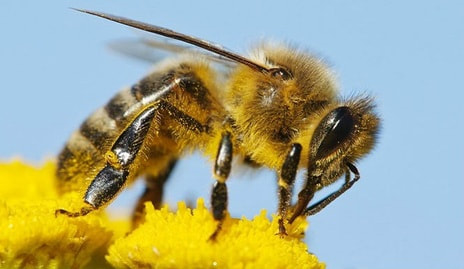Getting High On Honey
By James Donahue
That so-called "war on drugs" raging in the United States and a few other nations appears to be losing out to the force of Mother Earth. It seems that even the bees are creating a certain brew of honey that brings on euphoria and hallucinations.
But don’t go out and raid the local grocery stores for honey now that you know this. The honey we are talking about is rare. It is known as deli bal, or "mad honey," and is produced by bees that feed on grayanotoxane, a poisonous nectar from a special breed of the rhododendron flower that grows in Turkey, along the Black Sea.
The locals have known about this "mad honey" for years. In fact, over the years the people of that region have traded it as a produce with Europe, where the honey is mixed with drinks to give patrons a special "high."
The people in the region consider this special honey as a form of medicine. They use it to treat hypertension, diabetes, mellitus and stomach problems. They also believe it improves their sexual experience.
It is said that the local armies used the honey as a weapon against enemy soldiers. They left combs of deli bal along the trails taken by enemy soldiers. The soldiers fed on the honey, then became so intoxicated they were easily defeated in battle.
There is a warning that goes with this kind of honey, however. It must be consumed in small doses. Too much will cause the blood pressure to drop, irregular heartbeat, nausea, numbness, blurred vision, seizures and sometimes even death. Mad honey poisoning sometimes occurs among travelers that don’t know the dangers of an overdose.
While there are over 700 different species of rhododendron in the world, horticulturalists say they believe only two or three include the ingredient grayanotoxane in their nectar. This species apparently abounds along the humid mountainous slopes of Turkey, along the Black Sea. And it is here where the bees collect their nectars. The result is a potent form of deli bal.
The honey is legal in Turkey and can be purchased in shops that sell various varieties of honey. But deli bal is costly. At last count the price tag was $166 a pound. Local shopkeepers are generally leery about who they sell the honey to because they understand the danger of overconsumption. A teaspoon full is about as much as a person should consume at one time.
By James Donahue
That so-called "war on drugs" raging in the United States and a few other nations appears to be losing out to the force of Mother Earth. It seems that even the bees are creating a certain brew of honey that brings on euphoria and hallucinations.
But don’t go out and raid the local grocery stores for honey now that you know this. The honey we are talking about is rare. It is known as deli bal, or "mad honey," and is produced by bees that feed on grayanotoxane, a poisonous nectar from a special breed of the rhododendron flower that grows in Turkey, along the Black Sea.
The locals have known about this "mad honey" for years. In fact, over the years the people of that region have traded it as a produce with Europe, where the honey is mixed with drinks to give patrons a special "high."
The people in the region consider this special honey as a form of medicine. They use it to treat hypertension, diabetes, mellitus and stomach problems. They also believe it improves their sexual experience.
It is said that the local armies used the honey as a weapon against enemy soldiers. They left combs of deli bal along the trails taken by enemy soldiers. The soldiers fed on the honey, then became so intoxicated they were easily defeated in battle.
There is a warning that goes with this kind of honey, however. It must be consumed in small doses. Too much will cause the blood pressure to drop, irregular heartbeat, nausea, numbness, blurred vision, seizures and sometimes even death. Mad honey poisoning sometimes occurs among travelers that don’t know the dangers of an overdose.
While there are over 700 different species of rhododendron in the world, horticulturalists say they believe only two or three include the ingredient grayanotoxane in their nectar. This species apparently abounds along the humid mountainous slopes of Turkey, along the Black Sea. And it is here where the bees collect their nectars. The result is a potent form of deli bal.
The honey is legal in Turkey and can be purchased in shops that sell various varieties of honey. But deli bal is costly. At last count the price tag was $166 a pound. Local shopkeepers are generally leery about who they sell the honey to because they understand the danger of overconsumption. A teaspoon full is about as much as a person should consume at one time.
